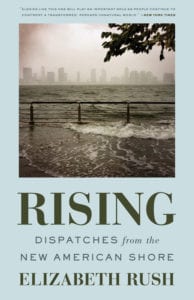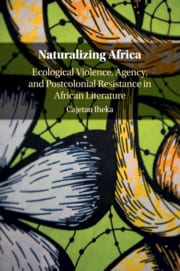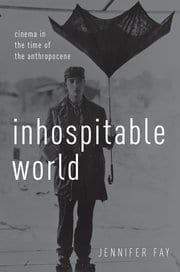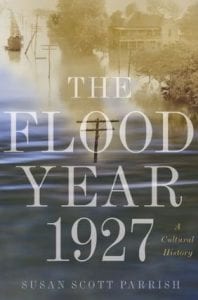Story Updated July 24, 2019
Judges have announced the winners for the 2019 ASLE Book Awards and Graduate Student Paper Awards. These awards in the areas of ecocriticism and environmental creative writing were established in 2007 and are given biennially to recognize excellence in the field.
The official presentation was held on June 27, 2019, at the Authors’ Reception during the 2019 ASLE Biennial Conference at the University of California, Davis. We received more than 70 creative submissions and 50 ecocritical submissions this year, by far the highest numbers ever. Congratulations to our winning and honorable mention authors:
ASLE Creative Writing Book Award Winner
 Rising: Dispatches from the New American Shore by Elizabeth Rush. Milkweed Editions, 2018.
Rising: Dispatches from the New American Shore by Elizabeth Rush. Milkweed Editions, 2018.
Judges (Elizabeth Dodd, John Tallmadge, and Laird Christensen) commented:
“Rising offers a vivid, compassionate, and personal account of meetings with extraordinary people who, living on the margins of both our continent and our society, are most directly and tragically affected by global warming. A compelling, masterful blend of journalism, social critique, and personal discovery that brings climate change right to the reader’s door.
Rush combines extensive research with moving personal connections to the places and people inhabiting those places affected by the oceans already rising–and the disruptions that rising and warming seas will increasingly unloose. Ambitious, important, and beautifully written.”
ASLE Ecocritical Book Award Winner
 Naturalizing Africa: Ecological Violence, Agency, and Postcolonial Resistance in African Literature, by Cajetan Iheka. Cambridge University Press, 2017.
Naturalizing Africa: Ecological Violence, Agency, and Postcolonial Resistance in African Literature, by Cajetan Iheka. Cambridge University Press, 2017.
Judges (Ryan Hediger, Erin James, Robin Murray, Jesse Oak Taylor, and Hsuan Hsu) commented:
“Naturalizing Africa brings together the previously separate conversations of postcolonial ecocriticism, environmental justice, and new materialism. It deftly weaves together the work of major ecocritical scholars such as Nixon, Haraway, Caminero-Santangelo, Iovino and Oppermann, and to sharply critique a status quo (the anthropocentrism of postcolonial studies). It explores the uncomfortable fact that the struggle for human liberation can cause ecological harm. In so doing, it foregrounds the question of how the autonomy of nonhuman nature–and disparate needs of human and nonhuman populations–can be factored into accounts of anti-colonial resistance. While it is not the first to discuss the role of non-humans in postcolonial ecocriticisim, it is more ambitious and nuanced than those that have come before, and close readings of familiar and less-often-studied African texts nicely model its intervention. Above all, Naturalizing Africa’s discussion of the environmental politics of postcolonial resistance is bold, refreshing, and timely. ”
Honorable Mentions:
 Inhospitable World: Cinema in the Time of the Anthropocene, by Jennifer Fay. Oxford University Press, 2018.
Inhospitable World: Cinema in the Time of the Anthropocene, by Jennifer Fay. Oxford University Press, 2018.
Judges commented:
“Inhospitable World is theoretically rigorous and productively engages a range of cinematic materials to effectively bring together cinema studies, discussions of the Anthropocene, material studies, and the history and theory of aesthetic worlds in fiction. It articulates a mature and accessibly written argument to demonstrate a compelling logic of how cinematic construction helps produce the larger planetary reality of the Anthropocene.”
 The Flood Year 1927, by Susan Scott Parrish. Princeton University Press, 2017.
The Flood Year 1927, by Susan Scott Parrish. Princeton University Press, 2017.
Judges commented:
“The Flood Year is a marvelous, magisterial book, navigating across a vast range of scholarly fields, theoretical concepts, and archival materials. Its treatment of a historical topic (The Mississippi flood of 1927) with obvious contemporary resonance and specific attention to environmental racism and ecological justice presents a remarkable example of cultural history in truly accessible prose for a “crossover” readership.”
ASLE Graduate Student Paper Award Winners
Judges awarded three emerging scholars this year, because the quality of submissions was very high. Judges for 2019 were Anita Girvan (Athabasca University), Derek Woods (Dartmouth College), and Erin Ellerbeck (University of Victoria). Awardees received a $100 prize and future publication in ISLE journal. The winners are:
Carlos Alonso Nugent (Yale University), “Latinx Archives in/of/and the Anthropocene”
Pao-chen Tang (University of Chicago): “Looking Through the Compound Eyes: The Ecological Sublime and Found Footage Aesthetics in Dragonfly Eyes”
Heidi Hong (University of Southern California), “Toxic Waters: Visualizing Vietnamese Ecologies in the Afterlives of Empire”
